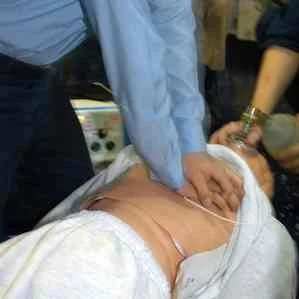Survival rates for patients who suffer cardiac arrest outside of a hospital are extremely low. An editorial published in the Annals of Emergency Medicine outlines three interventions that could significantly improve survival rates and functional outcomes for such patients. The editorial also highlights the need for additional funding for cardiac resuscitation research.
Lead author Bentley J. Bobrow, MD, professor of emergency medicine at the University of Arizona College of Medicine in Tucson and Medical Director for the Bureau of EMS and Trauma System in Arizona says, "As a nation, we are falling far short in our efforts to improve survival for this exquisitely time-sensitive medical emergency. We can and must do far better. The tools to do so are available right now and emergency physicians are uniquely positioned to lead this effort."
The three interventions proposed by Dr Bobrow and his team include:
1. The development of a national registry to report out-of-hospital cardiac arrest (OHCA) incidence and also links process of care measures with patient outcomes.
2. To encourage bystander cardiopulmonary resuscitation (CPR) by providing training and education along with training of 911 operators to guide bystanders through the use of standardised instructions.
3. To foster high-performance CPR by medical professionals by measuring the quality of CPR during resuscitations.
See also: CPR for Out-of-Hospital Cardiac Arrest to be conducted for 35 Minutes
The Institute of Medicine has also recently issued a set of recommendations to optimise cardiac arrest care. The steps proposed by Dr Bobrow and team are expected to improve survival from OHCA above the existing level of only six percent.
The paper also highlights the disproportional research funding for cardiac resuscitation and believes that it has played a major role in low survival rates from OHCA. Dr Bobrow points out that between 1985 and 2009, there were 294 federally-funded studies per 10,000 deaths per year for stroke as compared to only eight for cardiac resuscitation. He emphasises that funding for cardiac resuscitation research should be considered a national public health priority.
Source: American College of Emergency Physicians
Image Credit: Wikimedia Commons










